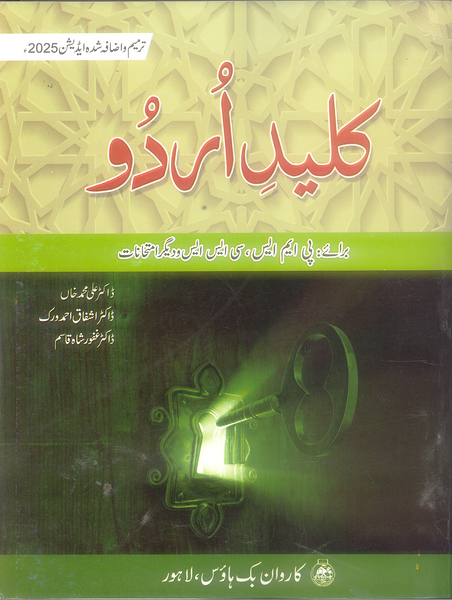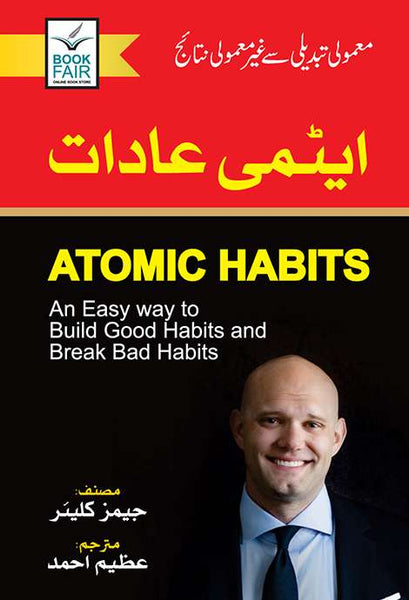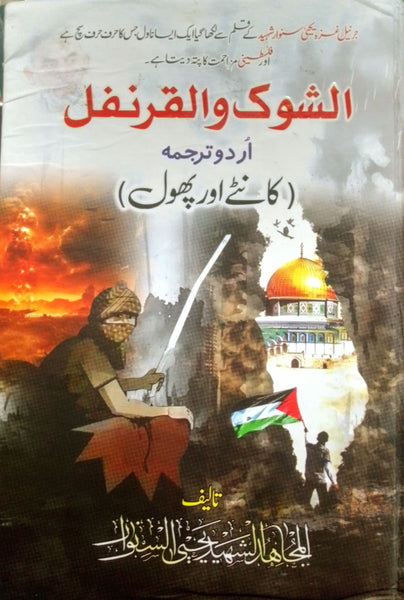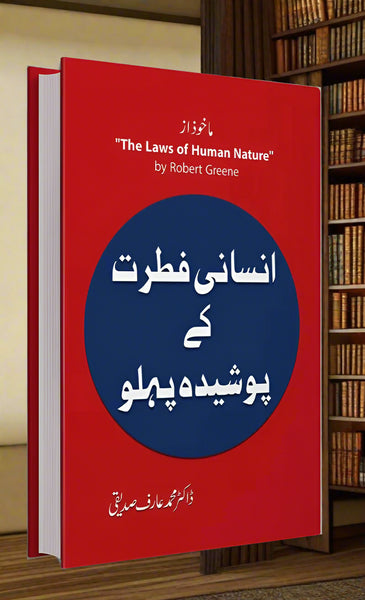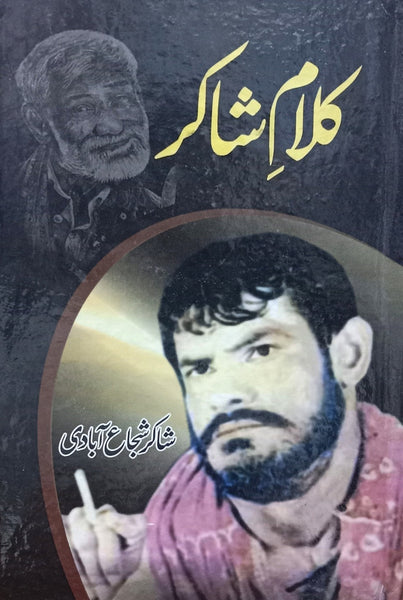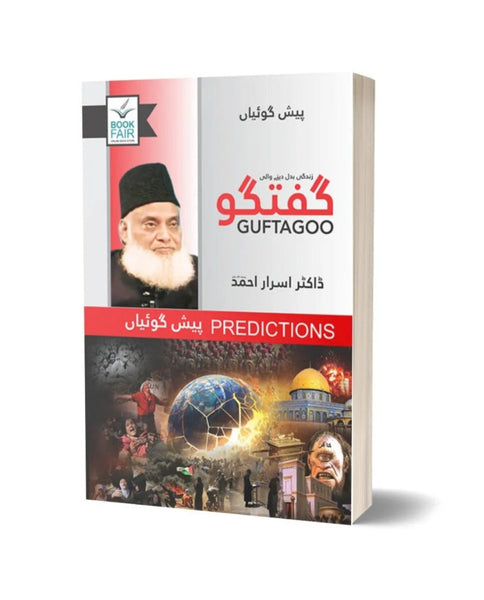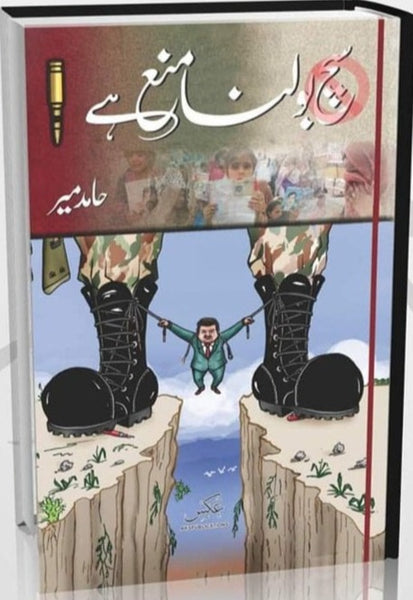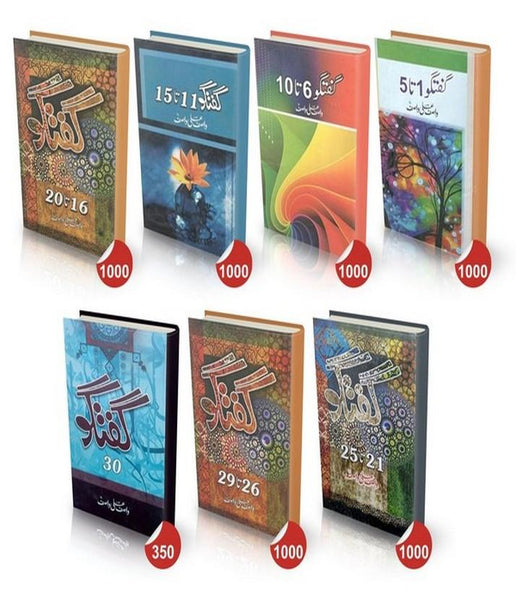Kaha Suna Maaf - کہا سنا معاف by Ata ul Haq Qasmi
- Publisher: Sang-E-Meel Publications
- Availability: In Stock
- SKU: 58245
- Number of Pages: 592
Rs.3,000.00
Rs.4,000.00
Tags: Ata ul Haq Qasmi , Ata ul Haq's legacy , compassionate writing , critical reflections on society , cultural insights , emotional growth , forgiveness in relationships , forgiveness journey , growth through understanding , healing through forgiveness , human empathy , human nature , humor in literature , humorous autobiography , introspective writing , Kaha Suna Maaf , lessons from life , lessons in forgiveness , lessons of life , let go of grudges , life anecdotes , life’s complexities , life’s journey , literary humor , literary reflections , Pakistani writer , personal reflection , personal stories , philosophical reflections , Qasmi's perspective , Qasmi's storytelling , reconciliation , Sang-E-Meel Publications , social dynamics in Pakistan. , Urdu book review , Urdu writing style , wisdom in humor
Kaha Suna Maaf is a renowned book by the celebrated Pakistani writer and humorist Ata ul Haq Qasmi. The title, which roughly translates to "What Was Said and What Was Forgiven," gives insight into the reflective and candid nature of the author's writing. The book takes readers through a collection of personal reflections, stories, and accounts from Qasmi's life, both in his professional and personal realms. Known for his wit, humor, and sharp social commentary, Qasmi explores themes of forgiveness, human behavior, and life’s lessons with his signature narrative style.
Key Themes and Features:
-
Autobiographical Narratives:
The book is largely an autobiography, where Qasmi recounts personal stories, incidents, and memories that shaped his life. The narrative is infused with both humor and seriousness, making it a reflective journey. -
Social Commentary:
Through his personal experiences, Qasmi sheds light on various social issues, such as the complexities of relationships, societal norms, and human behavior. His observations are often sharp, yet humorous. -
Forgiveness and Reflection:
The concept of "forgiveness" is central to the book. The title itself reflects a theme of letting go of grudges and reconciling with others. Qasmi uses the idea of "Kaha Suna Maaf" to explore how words, actions, and misunderstandings are part of the human experience and the value of forgiveness. -
Wit and Humor:
Known for his wit, Qasmi weaves humor into even the most serious situations. This adds a unique flavor to the book, allowing readers to reflect on life’s lessons while being entertained. -
Insight into Pakistani Culture:
The book offers valuable insights into the culture and social dynamics of Pakistan, including the challenges and joys of life in the country. Qasmi explores how these cultural elements influence personal and professional lives. -
Real-Life Incidents:
The author shares various real-life incidents, both humorous and poignant, making the narrative relatable. These anecdotes provide readers with a deeper understanding of Qasmi’s perspective on life. -
Emotional Depth:
While the book is filled with humor, it also delves into the emotional and spiritual side of life. It emphasizes the importance of introspection, understanding others, and reconciling with oneself. -
Philosophical Reflections:
In addition to personal stories, Qasmi reflects on broader philosophical concepts, such as the meaning of success, the nature of relationships, and the human capacity for empathy and understanding. -
Critical yet Compassionate:
Qasmi maintains a critical perspective on many aspects of society but does so with compassion. His observations invite readers to look beyond surface-level judgments and to consider the complexities of human nature. -
Language and Style:
Qasmi’s writing is elegant, poetic, and fluid. His use of the Urdu language enhances the emotional depth of his work, making it resonate with a wide range of readers.
Conclusion:
Kaha Suna Maaf by Ata ul Haq Qasmi is a compelling blend of humor, wisdom, and life lessons. Through personal anecdotes and philosophical reflections, Qasmi offers a profound exploration of human relationships, societal norms, and the importance of forgiveness. The book serves not only as an autobiography but also as a social commentary, making it both an entertaining and thought-provoking read. Readers are encouraged to reflect on their own lives, relationships, and the power of letting go of grudges. It is a reminder that, ultimately, forgiveness and understanding are essential to personal peace and growth.



